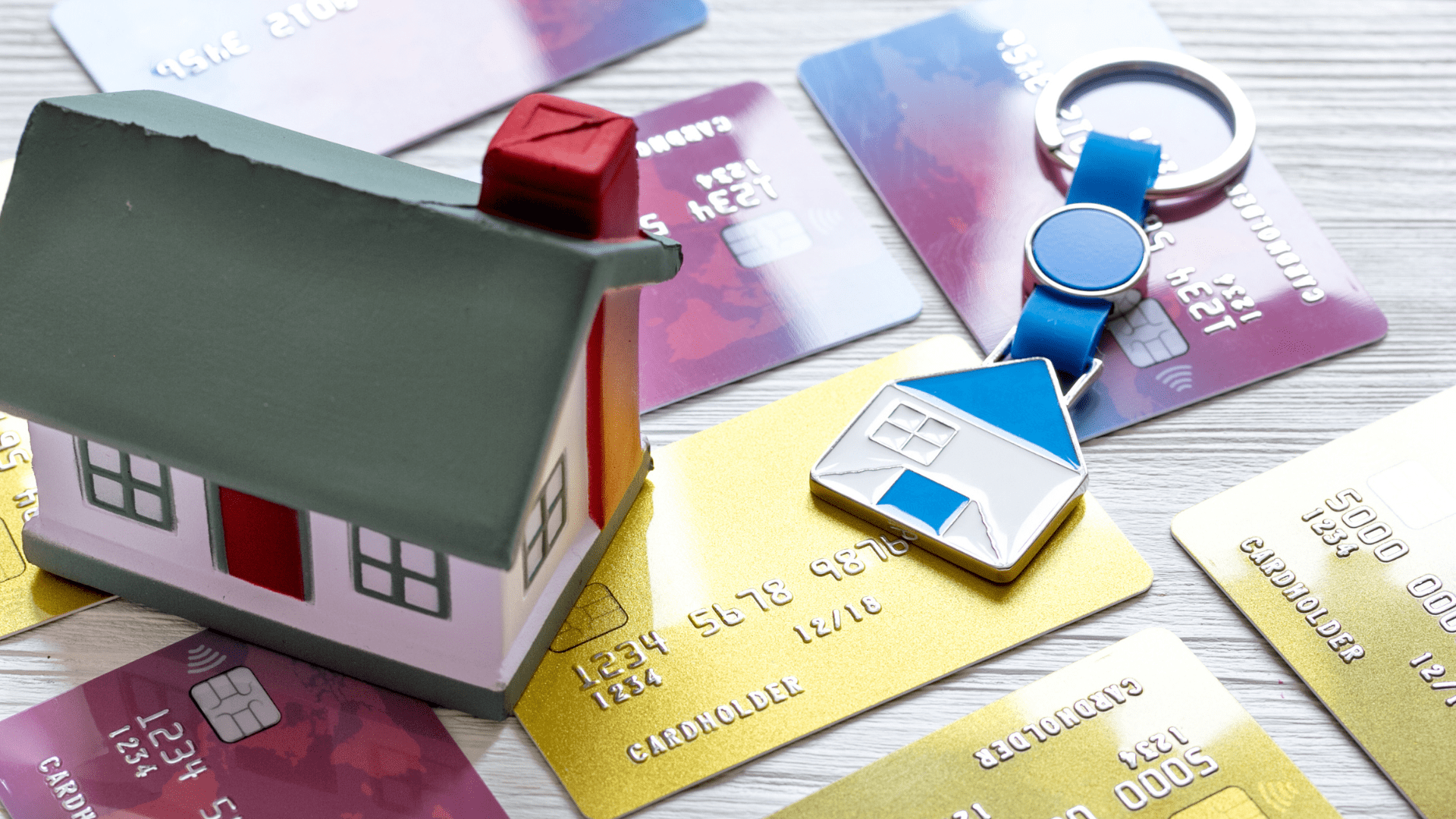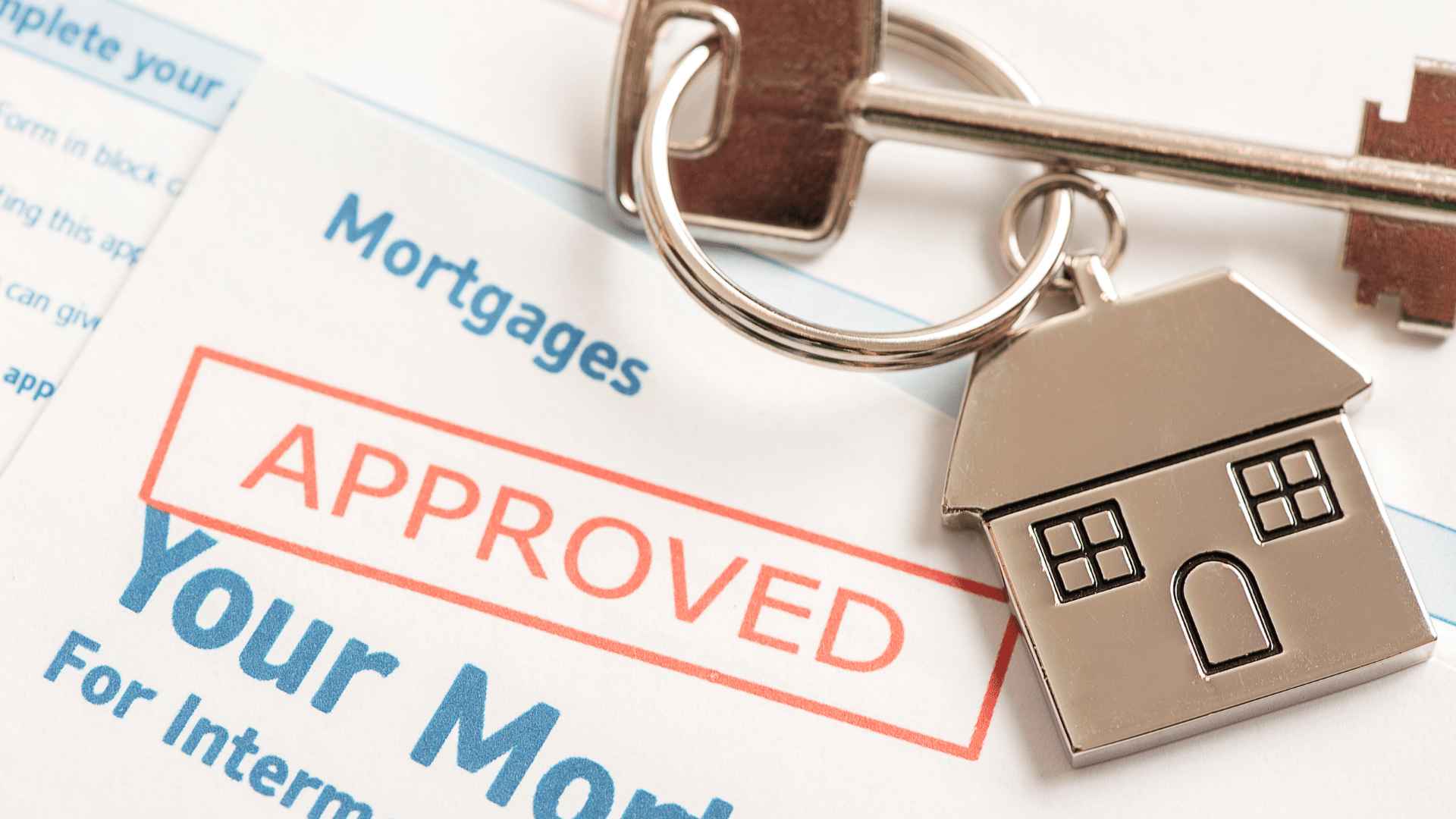Paying your mortgage with a credit card may sound unconventional, but it's a financial strategy that can offer various advantages, provided it's done wisely and responsibly. Your mortgage loan is a significant financial commitment, and finding ways to maximize benefits like credit card rewards can be enticing. Here, we'll explore how to pay your mortgage with a credit card and make the most of this financial move.
First, you'll need to confirm whether your mortgage lender accepts credit card payments. Not all mortgage lenders offer this option, so it's essential to check with your provider. If they do, you're one step closer to unlocking the potential benefits.
One of the primary benefits of using a credit card to pay your mortgage is the opportunity to earn credit card rewards. Many credit card companies offer rewards programs that provide cashback, travel points, or other incentives for every dollar spent. By using your credit card for mortgage payments, you can earn credit card rewards on a substantial expense, which can add up over time.
However, it's crucial to be mindful of a few key factors. First, consider your credit card's credit limit. Ensure that it can cover your entire mortgage payment without exceeding the limit, which could negatively impact your credit utilization ratio. A higher credit utilization ratio can potentially lower your credit scores.
Keep an eye on processing fees associated with using a credit card for mortgage payments. While the rewards can be enticing, processing fees can eat into your gains. Compare the fees with the potential rewards to determine if the trade-off is worthwhile.
To pay your mortgage with a credit card, you can set up direct credit card payments through your mortgage company's online portal. This allows for convenient and automated transactions, reducing the risk of late payments and late fees.
It's also essential to be aware of your credit card's interest rate, especially if you carry a balance. Credit card interest rates are typically higher than mortgage interest rates, so it's advisable to pay off your credit card balance promptly to avoid accumulating credit card debt.
Paying your mortgage with a credit card can be a financially savvy move if done responsibly. It offers the opportunity to earn credit card rewards while managing a significant expense. However, it's crucial to be aware of potential fees, credit limits, and interest rates. By carefully navigating these factors, you can maximize the benefits and potentially enjoy financial advantages while paying off your home loan.
MoneyGeek's Takeaways
MoneyGeek's Takeaways: Leveraging Credit Cards and Mortgages for Financial Success
In the realm of personal finance, understanding how to navigate the intricacies of credit cards and mortgage loans can lead to financial success. MoneyGeek's insightful takeaways shed light on the various strategies and considerations for managing these financial instruments effectively.
Credit Card Rewards and Payments:
One of the key lessons MoneyGeek emphasizes is the potential to earn credit card rewards. Many credit card companies offer enticing rewards programs, from cashback to travel points. By using credit cards for everyday expenses, such as mortgage payments, individuals can earn credit card rewards that accumulate over time. This can translate into substantial benefits, but it's crucial to manage credit card payments responsibly to avoid accumulating credit card debt.
Credit Card Management:
MoneyGeek underscores the importance of managing credit cards wisely. It's essential to monitor your credit card balance and pay your credit card bills on time to avoid late fees and maintain a healthy credit score. Credit utilization ratios, the amount of credit used compared to the total available credit, play a significant role in credit scoring. Keeping this ratio low is essential for good credit health.
Paying Mortgages with Credit Cards:
MoneyGeek introduces the concept of paying your mortgage with a credit card. While this option can offer the chance to earn rewards, it's essential to consider potential processing fees and interest rates. Using a credit card for mortgage payments can be advantageous, but individuals should weigh the benefits against the costs.
The Role of Mortgage Loans:
Mortgage loans are a central theme in MoneyGeek's takeaways. A mortgage loan is a substantial financial commitment, and understanding how to navigate it is crucial. MoneyGeek provides insights into how to use credit cards responsibly while managing mortgage payments.
Financial Rewards and Benefits:
By employing strategies like setting up direct credit card payments for mortgages and choosing the right credit cards with sign-up bonuses, individuals can maximize the financial rewards and benefits of their credit cards. MoneyGeek's takeaways provide practical guidance on how to make the most of credit cards.
Building Financial Resilience:
MoneyGeek's insights extend beyond credit cards and mortgages to encompass financial resilience. The importance of savings accounts, understanding transaction fees, and being aware of credit scores are all highlighted in MoneyGeek's takeaways. These aspects contribute to overall financial stability.
MoneyGeek's takeaways offer valuable guidance on how to navigate the complex landscape of credit cards and mortgages. By leveraging credit card rewards, understanding mortgage loans, and managing financial responsibilities, individuals can work toward their financial goals while maintaining fiscal health. The key is to strike a balance between maximizing rewards and managing debts responsibly, ultimately leading to financial success and stability.
Mortgage Loan
A Mortgage Loan is a financial instrument that plays a pivotal role in the journey to homeownership, a substantial and often lifelong investment. For many, it represents the realization of the dream of owning a home, providing a stable foundation for families and financial security. Understanding the dynamics of a mortgage loan, its associated mortgage payments, and the potential intersections with credit card rewards can empower individuals in their quest for property ownership.
The process begins with securing a mortgage loan from a mortgage lender. These mortgage lenders, often mortgage companies, are responsible for facilitating the home financing journey. They evaluate the financial eligibility of applicants, considering factors like credit scores, credit card balances, and the credit utilization ratio. These elements can impact whether an applicant can qualify for a mortgage and, subsequently, influence the interest rate attached to the mortgage loan.
Once the mortgage lender accepts the application, the borrower embarks on the journey of making regular mortgage payments. These mortgage payments are typically made monthly and include both principal and interest, slowly chipping away at the borrowed amount while paying the lender for the privilege of borrowing. Managing these payments responsibly is vital to maintaining a positive credit report and credit scores, as timely mortgage payments can positively impact your credit profile.
Enter the intriguing possibility of using credit card payments to pay your mortgage. While some mortgage lenders accept credit card payments, it's essential to weigh the benefits against the potential drawbacks. On one hand, it offers an opportunity to earn credit card rewards, such as cashback or travel points, which can be enticing for those looking to maximize their financial gains. This approach can be especially appealing when considering sign-up bonuses or welcome bonuses offered by credit card companies.
However, it's crucial to be cautious and consider several factors. Credit card payments for your mortgage can lead to credit card debt if not managed prudently. High credit card balances and late payments can negatively impact credit scores, potentially affecting your mortgage eligibility or interest rate. Moreover, processing fees associated with credit card payments can eat into the rewards earned, making it essential to calculate the cost-benefit ratio.
For those navigating the intricate landscape of a mortgage loan, it's important to make informed choices. The careful consideration of credit card rewards, credit card payments, and credit card balances can open up opportunities for financial optimization. However, it's equally crucial to prioritize responsible financial management, with timely mortgage payments at the forefront. Balancing these aspects can help individuals achieve their homeownership dreams, building a solid foundation for their families and future financial security.
Pros and cons of paying your mortgage with a credit card
Paying your mortgage with a credit card can be an attractive proposition, offering potential benefits and conveniences, but it also comes with its fair share of drawbacks. Let's explore the pros and cons of this financial strategy.
Pros of paying your mortgage with a credit card:
1. Earn Credit Card Rewards: One of the most significant advantages of paying your mortgage with a credit card is the opportunity to earn credit card rewards. Many credit card companies offer cashback, travel points, or other incentives for every dollar spent. By using your credit card for mortgage payments, you can accumulate rewards on a substantial expense, which can add up over time.
2. Convenience: Credit card payments offer convenience, allowing you to automate your mortgage payments and reduce the risk of late payments. This can be particularly helpful if you have a busy schedule.
3. Cash Flow Management: Using a credit card can help you manage your monthly cash flow effectively. It allows you to spread your mortgage payment over the course of the month, aligning it with your credit card billing cycle.
4. Grace Period: Most credit cards come with a grace period during which you can pay your balance without incurring interest charges. This means you could potentially have some time to pay off the credit card bill after using it for your mortgage, provided you make your payments on time.
Cons of paying your mortgage with a credit card:
1. Processing Fees: One significant drawback is the potential for processing fees associated with paying your mortgage with a credit card. Mortgage lenders or third-party payment services may charge fees that can offset the benefits of credit card rewards.
2. Credit Utilization Ratio: Using your credit card for a substantial expense like your mortgage can impact your credit utilization ratio, potentially lowering your credit scores. A high credit utilization ratio can negatively affect your ability to secure favorable credit terms in the future.
3. Interest Rates: Credit cards generally have higher interest rates compared to mortgage loans. If you carry a balance on your credit card, you could end up paying more in interest charges, negating the benefits of any rewards earned.
4. Risk of Credit Card Debt: If you're not diligent about paying off your credit card balance promptly, you could accumulate credit card debt, which can lead to financial stress and high interest charges.
Paying your mortgage with a credit card can be a double-edged sword. While it offers the potential to earn credit card rewards and provides convenience, it also carries the risk of processing fees, negatively impacting your credit, and accruing high-interest charges. Before making this financial decision, it's essential to weigh the pros and cons carefully and assess whether the benefits align with your financial goals and habits.
For more information on Vista Residences, email [email protected], follow @VistaResidencesOfficial on Facebook, Twitter, Instagram, and YouTube, or call the Marketing Office at 0999 886 4262 / 0917 582 5167.

.png)





